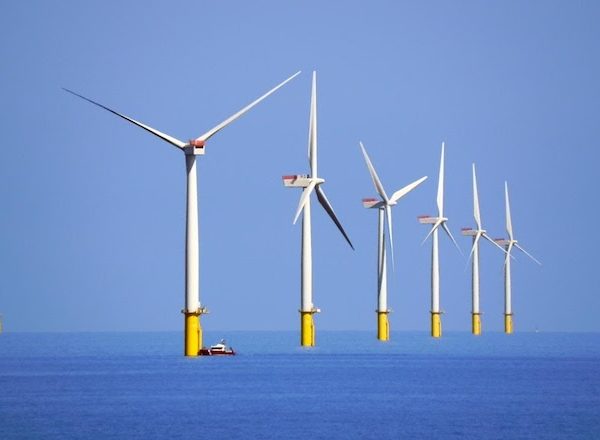Background
Boris Johnson’s conservative party won an outstanding majority in yesterday’s general election forcing Jeremy Corbyn’s Labour party into a distant second place. At the time of writing the Conservatives had won 363 seats and Labour had won just 203.
In an earlier article we compared the renewable energy policies of the main political parties. In this article we consider what the new government means for the development of renewable energy in the United Kingdom.

Figure 1 Boris Johnson
Priorities
The main issues at the heart of the Conservatives’ campaigning were Brexit and the National Health Service. Climate Change and the environment were covered but these were not a central feature of the campaign.
The relatively low importance of climate change is reflected in the Conservative party manifesto with Climate change and the environment being dealt with on a single page (57 of 64). Climate change is in there but is nowhere near top of the list.
Overview
Overall government policy on renewable energy does not look like it is going to change significantly in the near future. Expect some big announcements with a little bit of substance behind them in the run up to next year’s climate change conference.
The continued growth of the UK renewable sector is expected to continue. Don’t expect any planning breaks though.
Manifesto Text
The Manifesto text is reproduced below. Text particularly relevant to renewable energy has been underlined.
Fight climate change and protect the environment
Conservation is, and always has been, at the heart of Conservatism.
Our Government’s stewardship of the natural environment, its focus on protecting the countryside and reducing plastic waste, is a source of immense pride.
But today, the climate emergency means that the challenges we face stretch far beyond our borders.
Thanks to the efforts of successive Governments, the UK has cut carbon emissions by more than any similar developed country. We are now the world’s leader in offshore wind – a fantastic success story of Government and the private sector working hand in hand to cut costs and deliver ever more electricity at plummeting costs.
Unlike Jeremy Corbyn, we believe that free markets, innovation and prosperity can protect the planet.
Yet we recognise that there is far more that needs to be done.
We will lead the global fight against climate change by delivering on our world-leading target of Net Zero greenhouse gas emissions by 2050, as advised by the independent Committee on Climate Change.
We have doubled International Climate Finance. And we will use our position hosting the UN Climate Change Summit in Glasgow in 2020 to ask our global partners to match our ambition.
We will set up new international partnerships to tackle deforestation and protect vital landscapes and wildlife corridors. We will establish a new £500 million Blue Planet Fund to help protect our oceans from plastic pollution, warming sea temperatures and overfishing, and extend the Blue Belt programme to preserve the maritime environment. We will continue to lead diplomatic efforts to protect 30 per cent of the world’s oceans by 2030.
Our first Budget will prioritise the environment: investing in R&D; decarbonisation schemes; new flood defences, which will receive £4 billion in new funding over the coming years; electric vehicle infrastructure including a national plug-in network and Gigafactory (a very large battery storage facility); and clean energy.
In the next decade, we will work with the market to deliver two million new high quality jobs in clean growth. We have ambitious targets:
Our world-leading offshore wind industry will reach 40GW by 2030, and we will enable new floating wind farms.
We will invest £800 million to build the first fully deployed carbon capture storage cluster by the mid-2020s.
We will invest £500 million to help energy-intensive industries move to low-carbon techniques.
We will support gas for hydrogen production and nuclear energy, including fusion, as important parts of the energy system, alongside increasing our commitment to renewables.
We placed a moratorium on fracking in England with immediate effect.
Having listened to local communities, we have ruled out changes to the planning system. We will not support fracking unless the science shows categorically that it can be done safely.
We will help lower energy bills by investing £9.2 billion in the energy efficiency of homes, schools and hospitals.
We will support clean transport to ensure clean air, as well as setting strict new laws on air quality. We will consult on the earliest date by which we can phase out the sale of new conventional petrol and diesel cars.
Image accreditation: https://www.flickr.com/photos/53797600@N04/6849935334



